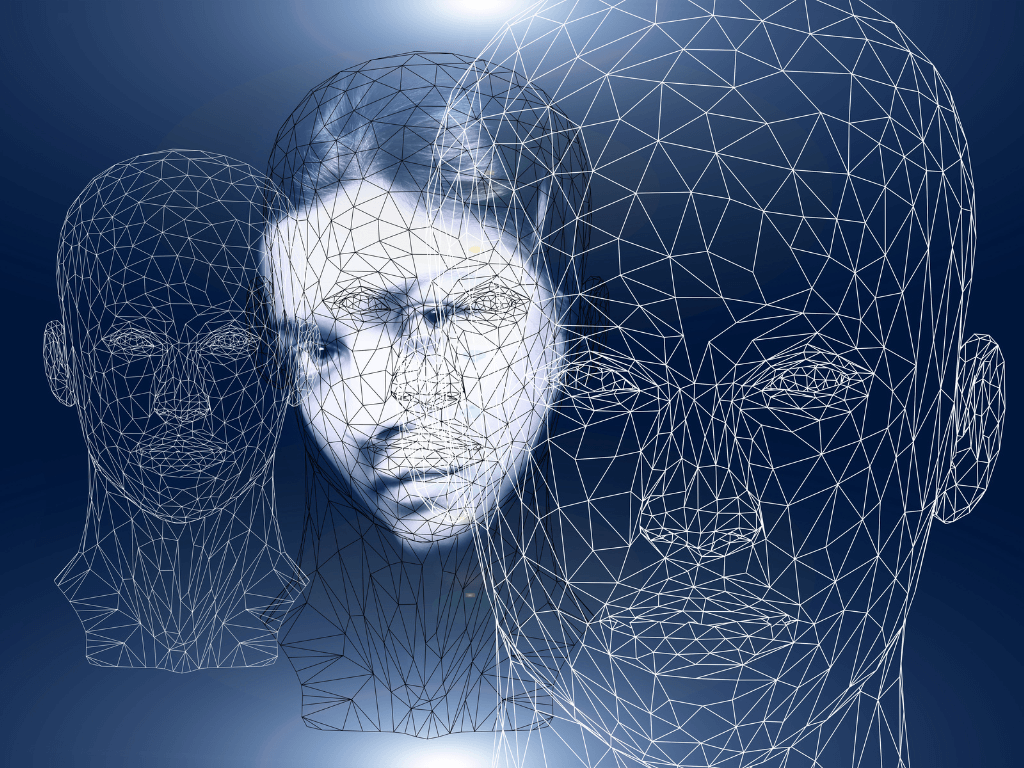Exploring the Different Types of Self Awareness: A Comprehensive Guide

Self-awareness is a crucial aspect of personal growth and development. It allows us to understand ourselves better, our thoughts, emotions, and behaviors.
In this comprehensive guide, we will delve into the different types of self-awareness and explore how they can be cultivated.
From understanding the concept of self-awareness to assessing our own level of self-awareness, we will discover the various components and benefits of this essential skill.
Join us on this journey as we navigate through the complexities of self-awareness and gain insights from different perspectives.
So, let's dive in and explore the different types of self-awareness in this comprehensive guide.
What is Self Awareness?
Having a deep understanding of oneself is essential for personal growth and development. Being conscious of our thoughts, feelings, convictions, and values is a multi-dimensional concept that involves introspection and reflection.
This journey of self-discovery allows us to gain insight into our motivations and reactions, enabling us to better manage ourselves and our relationships.
It also helps us to adapt our behavior to different situations and enhance our well-being.
Cultivating a sense of self-awareness is an ongoing process that necessitates self-reflection, self-assessment, and engaging in various activities. With this understanding of self-awareness, we can uncover our true selves and make meaningful changes.
Gaining a clear understanding of oneself is paramount for emotional intelligence and personal growth.
By taking the time to inspect and analyze one's thoughts, emotions, and behaviors, individuals can recognize their strengths and weaknesses and become aware of their impact on others and the environment.
This process of self-exploration allows us to gain insight into our motivations and reactions and adjust our behavior to suit different scenarios.
Through cultivating self-awareness, we can better manage ourselves and our relationships, improving our overall well-being. Self-awareness is an essential skill for self-improvement and is essential for personal growth.
What Are the Components of Self Awareness?
Exploring the facets that compose self-understanding is a vital part of personal growth. At the core of this concept lies introspection, self-reflection, and self-evaluation, all of which contribute to our capacity to recognize and comprehend ourselves.
Through introspection, we can delve into our feelings and ideas to gain a greater insight into our inner operations.
Self-reflection allows us to contemplate our actions and conduct by our values and convictions.
Lastly, self-evaluation involves assessing our strengths and weaknesses, as well as determining areas of improvement.
All of these components are essential for gaining a fuller understanding of the self.
Gaining knowledge of the elements of self-understanding is crucial, as it allows us to make more informed decisions and choices. Through introspection, we can detect patterns of behavior and motivations that guide our actions.
Self-reflection aids us in aligning our actions with our values and making any necessary tweaks. Self-evaluation helps us to identify areas for advancement and growth.
By acknowledging and nurturing these components of self-awareness, we can enhance our personal development and live a more rewarding life.
The components of self-understanding are intertwined and influence each other. Introspection, self-reflection, and self-evaluation are all closely related and work together to advance our comprehensive understanding of the self.
Introspection encourages us to consider our thoughts and emotions, which in turn precipitates self-reflection.
Self-reflection then allows us to gain enlightenment from our introspection and apply it to our actions and conduct. Self-evaluation helps us to assess the usefulness of our self-reflection and make any changes necessary.
All of these components cooperate to create an encompassing awareness of ourselves and our impact on the world.
Developing an awareness of the components of self is essential for personal growth and betterment. By recognizing the importance of introspection, self-reflection, and self-evaluation, we can actively engage in practices that cultivate our self-awareness.
This could include journaling, meditating, therapy, or seeking feedback from those we trust. By devoting time and effort to developing these components, we can attain a deeper understanding of ourselves and make meaningful modifications to our lives.
Ultimately, being aware of the components of self enables us to embark on a journey of self-discovery and personal transformation.
How To Assess Your Self Awareness
Gaining insight into your mentality, emotions, and behavior is an essential part of personal development.
To evaluate your self-knowledge, begin with self-reflection. Take a pause and mull over your thoughts and feelings, exploring the motives and how they can affect your actions.
In addition, seeking feedback from reliable people can give a different point of view and help you comprehend yourself more accurately.
By recognizing your strengths, weaknesses, and areas for growth, you can take proactive measures to grow and become more conscious.
Recording your ideas and experiences can also assist in assessing your self-awareness. Writing down your reflections can assist in achieving clarity and recognizing patterns or repeating topics in your life. As you journal, pay attention to your sentiments and reactions to distinct circumstances.
This can offer helpful insights into your triggers and help you understand why you react the way you do.
By becoming aware of these patterns, you can make thoughtful decisions to modify and progress.
To supplement, mindfulness practices can help you assess your self-awareness. Mindfulness involves being fully present and contemplating your thoughts, feelings, and sensations without judgment.
Through mindfulness, you can become more attuned to your internal experiences and comprehend yourself better.
Taking the time to participate in activities that encourage self-reflection and mindfulness, such as meditation or deep breathing exercises, can upgrade your self-awareness and help you be more aware of your thoughts, moods, and behavior.
Self Awareness Activities
Developing a more profound understanding of oneself is essential to one's personal growth and self-improvement.
A great way to achieve this is to engage in self-awareness activities. Journaling is one such practice, as it enables individuals to reflect on their thoughts, feelings, and actions and gain insight into their inner processes.
Mindfulness meditation is also beneficial, as it encourages one to focus on the present moment and become more aware of their own emotions.
Self-reflection exercises, such as reflecting on thought-provoking questions or seeking feedback from trusted people, can also be useful in developing self-awareness.
Self-awareness activities are also important in cultivating emotional intelligence and strengthening interpersonal relationships.
Empathy is an activity that can help individuals gain insight into themselves and others by putting themselves in someone else's shoes and understanding their emotions.
Self-assessment tools, such as personality tests or emotional intelligence assessments, can provide individuals with valuable insights into their strengths and weaknesses. Conflict resolution exercises can also help individuals become more attuned to their own biases and triggers.
All of these activities can help individuals build stronger relationships and enhance their emotional intelligence.
Finally, self-awareness activities can have a positive impact on mental health and overall well-being. Practicing self-compassion can help individuals cultivate a more positive relationship with themselves and reduce self-criticism.
Expressing gratitude is another activity that can foster a sense of contentment. Additionally, creative outlets, such as art or music therapy, can provide individuals with an opportunity to explore their emotions and gain a deeper understanding of themselves.
Ultimately, engaging in these activities can promote mental health and well-being.
Benefits of Cultivating Self Awareness
Harnessing self-awareness can bring countless advantages to our personal and professional lives.
Having a deeper comprehension of ourselves, our thoughts, sentiments, and behaviors can impart insight into our aptitudes and flaws, allowing us to make more intelligent decisions and take actions that are consistent with our values and ambitions.
It is the key to self-development and personal growth, as it gives us the chance to recognize areas for improvement and work on them.
By having a better understanding of our emotions, we can deal with problems more effectively, communicate more authentically, and construct healthier relationships with others.
Managing Emotions and Reactions: One of the major benefits of self-awareness is the ability to regulate our feelings and responses. When we are conscious of our emotional triggers and patterns, we can reply to circumstances more deliberately and constructively.
This not only aids us in avoiding unnecessary quarrels and misapprehensions but also helps us to maintain a sense of inner serenity and well-being. Acknowledging our emotions also leads to improved emotional intelligence, which is basic for successful leadership and collaborative endeavors with others.
By being aware of our sentiments, we can be more understanding and supportive of those around us, creating a positive and harmonious atmosphere.
Making More Judicious Decisions: Another advantage of developing self-awareness is the enhancement of decision-making aptitude. When we are aware of ourselves, we are better able to make selections that are congruent with our values and long-term objectives.
We become more in tune with our intuition and inner wisdom, allowing us to make decisions from a place of genuineness and clarity.
Moreover, self-awareness helps us identify any biases or limiting beliefs that could be influencing our choices.
By bringing these unconscious influences to light, we can make more objective and rational decisions, resulting in greater fulfillment and success.
Improving Overall Well-Being: In addition, cultivating self-awareness can upgrade our overall health and mental health.
With self-awareness, we can detect and tackle any detrimental habits or patterns that may be damaging to our physical, emotional, or mental well-being.
By recognizing and understanding the roots of these patterns, we can take proactive measures to alter them and replace them with healthier behaviors.
This can lead to increased self-esteem, reduced levels of tension, and improved
Understanding Self Awareness Through Different Perspectives
Comprehending ourselves through different outlooks is fundamental in forming an exhaustive comprehension of this concept. By studying self-insight from different points of view, we can acquire a deeper insight into its real substance and importance.
Examining various perspectives enables us to extend our points of view and challenge our accepted ideas. It allows us to comprehend that self-awareness is not a one-size-fits-all idea but rather a multifaceted marvel that can be approached from various points.
By receiving these assorted perspectives, you can get a handle on the full multifaceted nature and wealth of self-awareness.
One point of view on self-insight accentuates the reflective part of this wonder.
It features the significance of looking internally and analyzing our musings, feelings, and convictions.
Through contemplation, you can procure a superior comprehension of your internal activities and inspirations.
This point of view advances self-reflection and self-assessment as devices for developing self-awareness.
By delving into your psyche and investigating your internal scene, you can uncover covered examples, predispositions, and obliviousness that may affect your conduct and decisions.
- The social side of self-awareness is another perspective.
- It stresses the job of communication and connections in forming our self-perception.
- As per this perspective, self-awareness is not just about knowing ourselves but also about how we are seen by others.
- By considering how our activities and behaviors influence those around us, we can gain bits of knowledge about our effect on others and the bigger social setting.
- This point of view reminds us that self-awareness isn't solely a personal endeavor but is intently entwined with our communications and connections.
Moreover, a subjective perspective on self-awareness centers around the mental procedures engaged with self-perception and self-assessment.
It dives into the instruments through which we structure our self-idea and make decisions about ourselves.
This point of view examines how we decipher and assess our musings, feelings, and behaviors, just as how we analyze ourselves to others.
By understanding the subjective cycles of basic self-awareness, you can acquire more noteworthy gratefulness for the multi-fx.
Leave a Reply



Related Posts